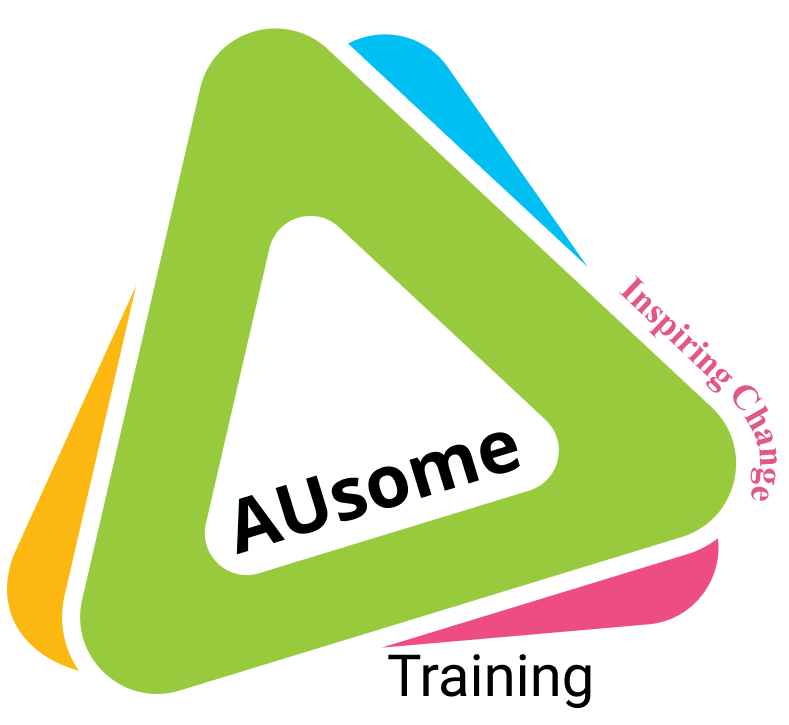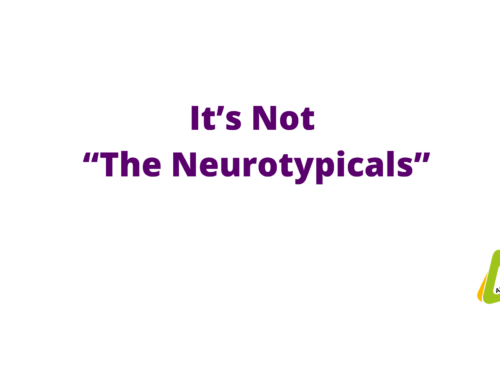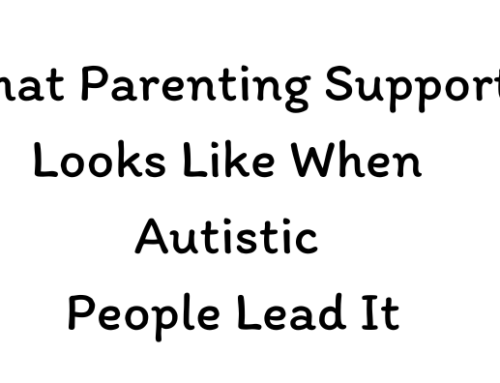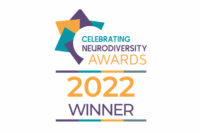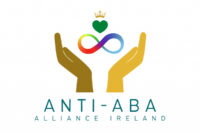PBS – positive behaviour support sounds so nice doesn’t it? it’s all so positively positive what with that word positive right there for us. How could it be problematic? Here we’ll outline just some of the ways in which PBS (positive bahaviour support) is harmful and not neuro-affrming to say the very least.
It’s so nice and positive , all you have to do is encourage good behaviour. I mean you get to define “good behaviour” but that’s ok coz it’s all positive you see.
First you decide what’s good and then you make every one do that.
First you say what’s acceptable and what’s unacceptable to you, not to the person you work with, just you, coz you have to do the positive thing, ok?
So you can involve the person in the positive stuff, like you write a behaviour contract with them, you include them so they feel included while you tell them what is acceptable.
So they sit there next to you while you tell them what’s going to happen and you get them to agree to it, because that’s what involvement and inclusion are, ok?
And you just decide that behaviour is a skill, you ignore all the current science that tells us that behaviour reflects environment, that it’s cultural, that we co-regulate, you just ignore all of that non-PBS stuff and write your behaviour plan cos you’re a PBS person and you know better than the neuroscientists- you know that behaviour is simply good or bad, acceptable or unacceptable.
But what about behaviours being acceptable in one context and not in another? SSShhhhh I’m doing my PBS stuff, ok?
It’s highly sciency. And it’s a joint thing we’re doing here, they get to sign it so they’re totally involved in the process, ok?
Can they insert ideas about your behaviour not being acceptable to them?
I am a PBS person, I and only I understand behaviour and the science stuff behind it, no, the other person can’t comment on my behaviour because I am the behaviourist and my behaviour is always right. But we can involve them in the contract so they’re included. That’s what inclusion means.
This is pretty much how PBS goes and that’s why PBS (positive behaviour support for autism) is problematic to say the very least.
Even more problems with PBS- positive behaviour support
Here’s an extract from NCSE Website ( our Irish educational website for Special Ed):
On the surface this list of rules or “routines” look harmless. But let’s take a closer look through a rights and Neuo-affirming lens:
CLASS ROUTINES:
To ensure that these rules are kept, these are class routines that we have agreed.
- We walk quietly into class on time for each lesson and sit quietly until teacher starts the lesson.
What if I am heavy footed?
What if I’m dyspraxic and bump into things on my way?
What if I forget where my classroom is?
What if I can’t sit still?
What if I’m uncomfortable and need to verbally stim to regulate?
What if I’m trying to process what happened in the last class and need to verbally stim to remember and learn it?
What if I have a rubbish concept of time?
What if I don’t own a watch?
What if I need to ask my classmate for a pencil?
What if I need to ask my classmate if I’m in the right class?
Why are we meeting all teacher’s sensory needs and not the pupils?
Making a list does not magically disappear neurological differences or ways of processing and interacting with our environment . But it does put pressure on pupils to mask.
2. We listen to others respectfully.
Which means sitting still, because that’s what is meant here. But Neurological differences mean that some of will move about, doodle, jump up and get excited, fidget, need to interject…and do all of these things while listening.
The presumption in this PBS model is that “respectfully” means neuro-conformative or stereotyped listening but of course humans run while listening to podcasts, drive with the radio on and chat to each other on the phone while shopping.
So this is just nonsense really
3. We raise our hand and wait for permission if we want to speak during class teaching time.
Wait, what? I thought this was a joint thing where we included pupils? But they need to ask for permission from … the rest of their class? Ah no, you mean the teacher, the adult .. so this contract was… inclusive how exactly?
4. When we are working in groups, we use partner voices to communicate with our partners.
“Partner voices” which means library voice or inside voice- to meet everyone’s sensory needs except for the pupil who has huge difficulty knowing if they’e being loud or not. They’re now afraid to talk at all so they say nothing.
“Partner voice” is an ableist concept because it means that we place unreasonable expectations on a pupil who has little or no control over the volume of their voice.
5. We ask for permission if we need to leave our seat.
Here’s that “permission” again- but wasn’t the pupil meant to be an equal partner from the start- wasn’t there lots of talk about involving them to create this plan- so why would there be involvement at the start and then a need to ask permission here?
Because the involvement at the start is for aesthetics. The adult is the one in charge and the kid knows it which is why they “agree” and go along with the charade in the first place. They know they don’t really have a choice in this interaction with a blatant imbalance of power.
This is just compliance and one person having power over another, neatly disguised as a “contract” with mutually agreeable parties.
CONSEQUENCES:
When we choose to abide by the class behaviour agreement, the consequences are:
- We will have a happy, safe, respectful class where everyone can learn and everyone can communicate
In ways the adults deem acceptable and definitely not any Neurodivergent sort of communication
- We will earn credits for individual reward and for whole-class reward. The rewards may be:
a. Lots of praise and support from the school staff
b. Treats (fruit, scones, drinks, sweets, lollipops, cakes)
c. Golden Time where we can select a favoured activity for our once-a-week class Golden Time
d. Individual Golden Time outside the weekly class Golden Time
Rewards = compliance, which is at the heart of PBS, just as it is in ABA. Everything else is make believe, pretend, nicely worded lies about inclusion and involvement.
Still needing more clarification on the dangers of PBS?
What if we were to use PBS in an adult mental health setting? Just to show how ridiculous PBS is.
(content warning – using mental health and suicidal thinking to illustrate this point so if you’d find that subject triggering then feel free to finish your reading now)
…with a suicidal adult let’s say. Let’s call them FJS
PBS would tell us that this behaviour is socially unacceptable. All we need to do to stop this negative behaviour is to write up some rules that we pretend the client is involve in.
It would say that we should model the acceptable , positive behavior
And we’d reward or reinforce the positive behaviour
So we’d tell a suicidal adult to look at Johnny and Mary, your peers who are not suicidal – you can act just like them
We’d congratulate Johnny and Mary for not being suicidal – this way FJS, the person who is just holding onto life, would see that the way Johny and Mary behave is much better, much nicer for everyone, and less unacceptable.
We’d model the non suicidal behaviour- “oh look at me, not thinking about killing myself today” “life is so good” , “I love living’
We’d reward FJS for not being suicidal. We’d praise their efforts for not googling “painless ways to die” today.
We’d say “good work FJS” to positively reinforce their behaviour with our words and maybe even then we’d give them something they really like.
We’d have done some really scientific stuff you see, we’d have found out what makes FJS happy, what motivates them. So FJS likes reading. So we’d say “do some good living today FJS’” because we need to use positive language in all this positive behaviour scientific stuff you see. So don’t say “don’t try to kill yourself” instead use positive language like “stay alive today FJS” and FJS will feel empowered and good about themselves now
And hey presto! it’s all fixed, all good except FJS learns that people don’t give a damn about them, sign the “behaviour contract” to get them off their back and not cause any more trouble and feel even worse about themself.
PBS is a pretend nice thing which forgets humans are human and uses power roles to get a desired outcome, an outcome that the person with lesser power “agrees” to because they have no choice not to. The other person hold all the metaphorical cards.
It also forgets that humans have really good reasons behind their actions, we call them emotions. And PBS also forgets that it’s 2023 and we know far better now than to be inflicting these sort of woo woo ideas on Autistic kids and adults
When we know better we do better, so let’s start doing better
